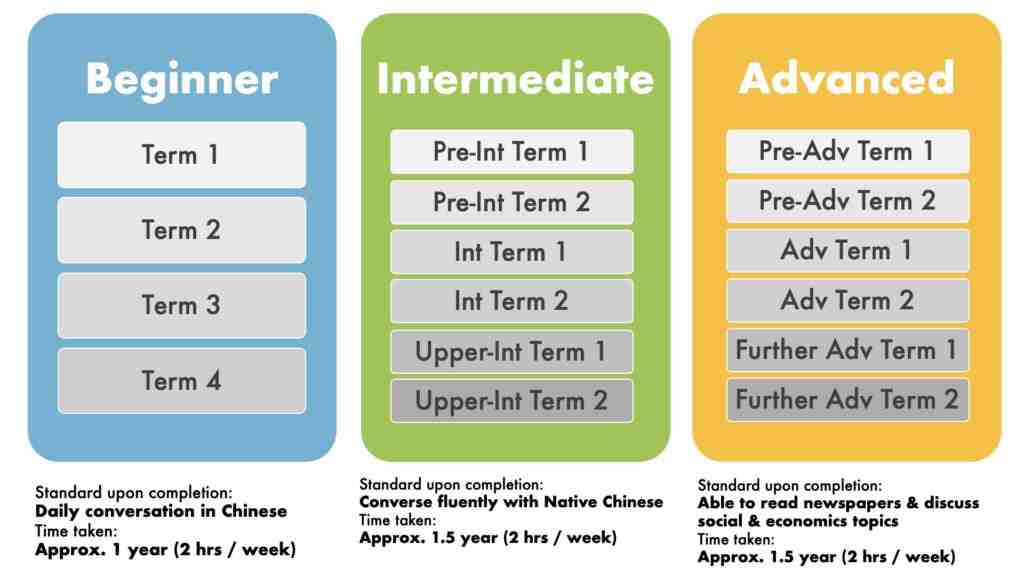Essential Financial Chinese Terms to Build Rapport with Mandarin-Speaking Investors
Essential Financial Chinese Terms to Build Rapport with Mandarin-Speaking Investors

Throughout the first three months of 2025, China has shown a significant growth in its Gross Domestic Product (GDP), exceeding economists’ expectations by reaching 5.4% just from the first quarter. Deputy Director of NBS, Sheng Laiyun, has mentioned that this growth indicates a great start for the year, maintaining the same upward trend. This trend shows China’s strong presence as the world’s second largest economy.
Supported by its strong presence in the economy, China has been known for its massive investment to other countries. One of these notable countries is Singapore, which has accumulated a total of US$8.295 billion in 2022. This data shows a significant growth for the past decade, indicating China’s continuation in investing in different sectors in Singapore.
These increasing amounts of investment is not without reason. Singapore has long established its preeminent position in the global economy, receiving foreign direct investment. Through this article, we will explore China’s eagerness to invest in Singapore and how to build rapport as a Singaporean dealing with Mandarin speaking investors by learning some key expressions in Mandarin for finance professionals.
Strengthening bonds between China and Singapore
Over the last decade, Singapore has shown itself as one of the major recipients of China’s foreign direct investment. This economic gain does not only assist Singapore in maintaining its financial position, but also helps strengthen its infrastructure. As the world’s economy keeps changing over time, here are a few reasons why Singapore can maintain its solid bond with China.
- Language Familiarity
Language familiarity might sometimes be overlooked by other parties due to the existence of English as one of the most spoken languages in the world. However, the ability to understand and communicate with Mandarin has been one of the main reasons for China’s strong preference for Singapore. This shared familiarity builds trust within one another, eliminating the possibility of misunderstandings caused by language barrier and cultural differences. - Geostrategic Position
Singapore is positioned at the crossroads of major shipping lines, allowing access from China and other countries. Its strategic position serves a major role in connecting the East and West parts of the world, acting as a hub that enhances connectivity between Asia, Europe, and Africa. Singapore’s location also allows Chinese companies to efficiently manage logistics, access Southeast Asian markets, and operate within a stable geopolitical environment. - Transparent Governance
Ranked consistently high on global indices for anti-corruption, ease of doing business, and rule of law, Singapore offers a predictable environment where business rules provide clarity toward investors. This clarity in regulations deliver a smoother relationship between Singapore and China, increasing the opportunities for direct investment in the country. - Technology Acceptance
Singapore is widely known for its immersion in technology, providing an advanced digital environment. This rapid growth of technology in Singapore proves its commitment and openness toward digital transformation, deeming the country as adaptable to sudden change. Much like China, the commitment to swiftly adapt to major changes has helped Singapore gain trust and credibility, showing its capability to maintain its position in the global market.
Singapore’s Most Attractive Sectors
Investment comes in many different sectors, each of them having its own characteristics that serves as a major difference. While trying to invest in a foreign country, it is important to have a profound understanding in the most attractive sectors. When China’s investors are considering investing their money in Singapore, there are a few sectors that may come to mind as the following.
- Real Estate and Property Development
In Singapore, real estate and property development has been deemed as the most stable and resilient investment. With its limited supply due to its land allocation, Singapore has successfully maintained a strong demand, increasing the value of real estate investment.
- Finance and Banking
It is to no one surprise that finance and banking ranks as one of the most stable and attractive sectors to invest in. As the building blocks of a country, financial sectors usually serve a better investment growth, prioritizing stability that reflects on the country’s overall financial situation.
- Technology and Innovation
Singapore has been very adaptive with technology, accepting its existence and participating in innovating due to its strong research and development. Backed by its capability to conduct research for further development, Singapore has been very attractive for China’s investors, as some notable tech-oriented companies have settled their company in Singapore, such as Alibaba and Tencent.
- Infrastructure and Construction
Singapore’s main priority has always been revolving around urban development. The main goal itself is not limited to ensure a strong development, but also maintaining a sustainable and modernized infrastructure.
Financial Vocabulary You Need to Master

Below is a list of essential Chinese financial terminology every finance professional should know to converse effectively with Mandarin-speaking clients.
- Yínháng (银行) – Bank
- Cúnkuǎn (存款) – Deposit
- Qǔkuǎn (取款) – Withdrawal
- Tóuzī (投资) – Investment
- Gǔpiào (股票) – Stocks
- Lìrùn (利润) – Profit
- Héyuē (合约) – Contract
- Fùkuǎn (付款) – Payment
- Lǐcái (理财) – Financial planning
- Fēngxiǎn (风险) – Risk
- Bǎoxiǎn (保险) – Insurance
- Bǎodān (保单) – Policy
- Dàikuǎn (贷款) – Loan
- Xìnyòng (信用) – Credit
Speak Like A Pro: Try These Dialogue to Build Rapport with Mandarin Speaking Investor
These sample dialogues are a great starting point for anyone learning Mandarin for finance professionals aiming to strengthen investor relationships.
- 您对股票或基金投资感兴趣吗?
Nín duì gǔpiào huò jījīn tóuzī gǎn xìngqù ma?
“Are you interested in investing in stocks or funds?”
- 我想了解更多关于利润和风险的细节。
Wǒ xiǎng liǎojiě gèng duō guānyú lìrùn hé fēngxiǎn de xìjié.
“I’d like to know more about the profit and risks involved.”
- 这份合约的付款条款是什么?
Zhè fèn héyuē de fùkuǎn tiáokuǎn shì shénme?
“What are the payment terms in this contract?”
- 付款将在货物交付后30天内完成。
Fùkuǎn jiāng zài huòwù jiāofù hòu 30 tiān nèi wánchéng.
“Payment will be completed within 30 days after delivery.”
- 我希望降低风险,同时保障收益。
Wǒ xīwàng jiàngdí fēngxiǎn, tóngshí bǎozhàng shōuyì.
“I want to minimize risk while ensuring returns.”
- 我们的团队具备丰富的行业经验,可以满足您的业务需求。
Wǒmen de tuánduì jùbèi fēngfù de hángyè jīngyàn, kěyǐ mǎnzú nín de yèwù xūqiú.
“Our team has extensive industry experience and can meet your business needs.”
- 我们有信心这个项目会取得良好的成果。
Wǒmen yǒu xìnxīn zhège xiàngmù huì qǔdé liánghǎo de chéngguǒ.
“We’re confident this project will deliver great results.”
Level Up Your Mandarin, Here’s a Few Tips to Apply

Knowing how learning and communicating in Mandarin may help you build rapport with Mandarin speaking investors, it is important to always deepen your understanding. To attract and seal the deal with investors, communicating with clarity and the ability to stay clear with your own words are equally important. To assist you in learning Mandarin thoroughly, here are a few easy but effective tips that you can apply!
- Routine practice – A common saying that people will always bring up is how practice is the best teacher. While learning language, this has become one of the most valuable pieces of advise. It is nearly impossible to be able to communicate without the commitment to implement it into your daily life. Try engaging with locals or other parties that are fluent in Mandarin to help you improve your skills even further.
- Immerse in news – Immersion is by far one of the most effective ways to be able to understand language faster. This technique requires the learner to get into as many Mandarin exposures as possible. Reading financial news in Mandarin will help you stay updated while reinforcing your Chinese financial terminology in a real-world context.
- Seek for professional trainers – Once you’ve gotten a strong foundation in speaking Mandarin, another question might also arise: how to learn specific terms that can be tailored depending on your needs? To answer this question, seeking professional trainers through attending courses has been highly recommended. Attending business courses with expert trainers will not only help you build confidence, but also will assist you in structuring an effective learning method that can be adjusted based on your needs.
As Singapore gains more investment from Mandarin speaking investors, learning Mandarin has slowly become an essential part of business. Although speaking with English is completely acceptable, investors from China still prefer communicating in their native language. The ability to speak Chinese Mandarin will not only clear understanding, but also build a stronger rapport with the respective investors.
Taking a course in Mandarin for finance professionals not only boosts your confidence but ensures you’re well-prepared for high-level financial discussions. If you’re interested in getting further experience and knowledge to help build a strong bond with Chinese investors, visit us and start your learning journey today!







